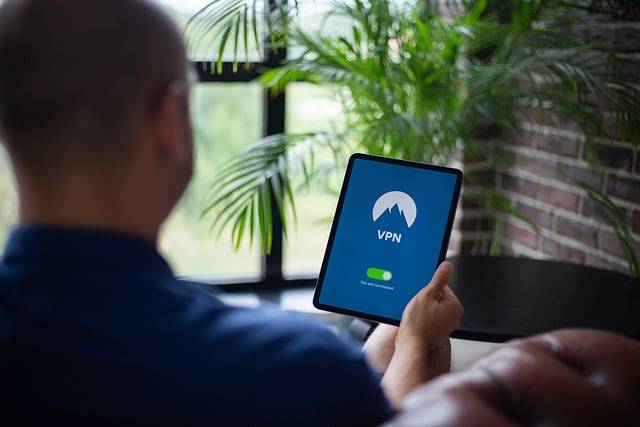In recent years, the use of virtual private networks (VPNs) has become increasingly popular. However, many Internet Service Providers (ISPs) have begun to block VPNs from their networks.
This blog article will explore the reasons behind ISPs blocking VPNs and examine the impact this has on users. We will also look at solutions for bypassing ISP blocks on VPNs as well as assess the legality and ethics of such practices by ISPs.
Finally, we’ll investigate how to protect your privacy from ISP blocks in order to ensure that you can continue using a secure connection while online.
Table of contents: Isps blocking vpn
- Uncovering the Reasons Behind ISP Blocking of VPNs
- Examining the Impact of ISP Blocking on VPN Users
- Exploring Solutions to Bypassing ISP Blocks on VPNs
- Assessing the Legality and Ethics of ISPs Blocking VPNs
- Investigating How to Protect Your Privacy from ISP Blocks
The use of virtual private networks (VPNs) has become increasingly popular in recent years. They provide users with a secure connection to the internet, allowing them to access content that may be blocked by their Internet Service Provider (ISP). However, some ISPs are now blocking VPNs from being used on their networks.
This is concerning for many people who rely on VPNs for privacy and security while browsing the web. It also raises questions about why ISPs would want to block these services in the first place. To understand this issue better, let’s take a look at what is happening and why it might be happening.
One reason that ISPs may be blocking VPN usage is due to copyright infringement concerns. By using a VPN, users can access content from other countries which may not have the same copyright laws as their own country or region does – meaning they could potentially download copyrighted material without permission or payment of royalties/fees associated with it. This could lead to legal issues for both ISP and user alike if caught doing so; hence why an ISP might choose to block such activity altogether by preventing its customers from using any type of VPN service on its network(s).
Another potential reason behind this move could simply come down to economics: streaming services like Netflix often charge different prices depending on where you live; thus, if someone were able to “spoof” their location via a VPN, then they would essentially get around paying full price for those services – something which obviously wouldn’t sit well with companies like Netflix who rely heavily upon subscription fees as part of their business model!
As such, some ISPs have decided it’s best just not to allow any kind of “location spoofing” whatsoever – even though there are legitimate reasons one might need/want such functionality too (e.g., accessing geo-restricted websites).
Finally, another factor here could simply come down to politics: certain governments around the world don’t always appreciate citizens having unrestricted access online – especially when said citizens can bypass government censorship measures put into place through various means, including but not limited to utilizing tools like proxies & VPNs!
Thus again, we see how an ISP might decide that blocking all forms of proxy & VPN usage across its network(s) makes sense in order to ensure compliance with local laws/regulations set forth by said government body…even though, again, there are still legitimate uses cases here too!
Uncovering the Reasons Behind ISP Blocking of VPNs
As the internet continues to evolve, so too does the technology that powers it. One of these technologies is virtual private networks (VPNs), which are used by millions of people around the world for a variety of reasons. However, there have been reports from some users that their Internet Service Providers (ISPs) are blocking access to VPNs. This raises an important question: why would ISPs block access to VPNs?
To answer this question, we must first understand what a VPN is and how it works. A VPN creates an encrypted connection between two devices over the internet and allows users to securely connect with each other without having their data exposed or monitored by third parties such as ISPs or governments.
While this provides many benefits for individuals who need extra security while browsing online, it can also be used for activities that may not be allowed in certain countries or regions – such as accessing restricted content like streaming services or websites blocked in certain countries due to censorship laws – thus making them attractive targets for ISPs looking to restrict user activity on their networks.
Another reason why ISPs might choose to block access to VPNs is that they want more control over what kind of traffic passes through their network and where it goes; if they don’t know exactly where your data is going, then they can’t monitor its usage and potentially charge you more money based on your activity levels – something known as “throttling.” Additionally, some providers may see using a VPN as an attempt at bypassing any bandwidth caps set up by them – another way in which they could lose out financially if enough customers start using one regularly instead of paying extra fees per month.
Finally, there’s also speculation that some governments may pressure local ISPs into blocking access completely due to political reasons; either because specific sites/services hosted abroad contain information deemed sensitive/dangerous according to those authorities’ standards or simply because allowing citizens unrestricted freedom when navigating online could lead down paths deemed undesirable from those same government entities’ perspectives.
Examining the Impact of ISP Blocking on VPN Users
As the internet continues to evolve, so do the methods used by ISPs to control access. One of these methods is blocking VPNs, which can have a significant impact on users who rely on them for their online activities. In this article, we will examine the implications of ISP blocking and how it affects VPN users.
ISP blocking occurs when an Internet Service Provider (ISP) blocks certain websites or services from being accessed through its network. This type of restriction is often used to limit access to content that may be deemed inappropriate or illegal in some countries or regions. It can also be used as a way for ISPs to protect their networks from malicious activity, such as hacking attempts and malware infections.
The most common form of ISP blocking involves using Deep Packet Inspection (DPI). DPI allows an ISP to inspect each packet sent over its network and determine if it contains any data that should not be allowed through the connection. If so, then the packet will be blocked before reaching its destination server or website – effectively preventing access by anyone using that particular connection point at that time period.
For VPN users, this means they are unable to connect with their desired service provider due to restrictions imposed by their ISP’s DPI system – even though they may have paid for a subscription plan with said provider beforehand! As such, those who rely heavily on virtual private networks must take extra precautions when selecting an appropriate service provider in order to ensure uninterrupted connectivity at all times – especially if they live in areas where ISPs are known for implementing strict policies regarding online content filtering/blocking practices.
Exploring Solutions to Bypassing ISP Blocks on VPNs
As the internet continues to evolve, so do the methods used by ISPs to block VPNs. This has become a major issue for users who rely on virtual private networks (VPNs) for secure and anonymous web browsing. Fortunately, there are ways to bypass ISP blocks on VPNs and regain access to restricted content.
One of the most effective solutions is using a proxy server or Smart DNS service. These services act as an intermediary between your computer and the websites you visit, allowing you to access blocked sites without revealing your true IP address or location. Additionally, some providers offer specialized servers that can be configured specifically for unblocking geo-restricted content from streaming services such as Netflix or Hulu Plus.
Another solution is port forwarding which allows traffic from specific ports through firewalls set up by ISPs in order to prevent certain types of connections from being established with their network infrastructure. By setting up port forwarding rules within your router settings, you can ensure that all incoming requests are directed toward a specific destination – thus bypassing any restrictions put in place by your ISP provider.
Finally, it’s important not to forget about encryption protocols when attempting to bypass ISP blocks on VPNs; these protocols help protect data sent over public networks while also providing additional security measures against malicious attacks such as man-in-the-middle attacks (MITM).
Assessing the Legality and Ethics of ISPs Blocking VPNs
As the internet continues to evolve, so do the laws and regulations that govern its use. One of the most recent developments is ISPs blocking VPNs (Virtual Private Networks). This has raised a number of questions about legality and ethics, as well as how it affects users’ online privacy.
The legality of ISPs blocking VPNs depends on several factors, such as country-specific legislation, ISP policies, and even user agreements. In some countries like China or Russia, where access to certain websites is restricted by law, ISPs are allowed to block VPN traffic in order to comply with local regulations. On the other hand, in countries like Australia or Canada, where there are no specific laws prohibiting this practice, it may still be considered unethical for an ISP to restrict access based on their own preferences or interests.
When assessing whether an ISP’s decision to block VPNs is ethical or not, one should consider how much freedom users have when choosing which services they can use online without being blocked by their provider. If a user cannot freely choose which services they want without interference from their provider, then this could be seen as a violation of net neutrality principles, which state that all data should be treated equally regardless of source or destination address.
Furthermore, if an ISP blocks certain types of traffic, such as VoIP calls, because they don’t offer these services themselves, then this could also be seen as anti-competitive behavior since it prevents customers from using alternative providers who might offer better prices than what’s available through the original service provider.
Finally, when considering whether it’s legal for an ISP to block VPN traffic, one must also take into account any potential implications for user privacy. By preventing customers from accessing secure networks, ISPs may inadvertently expose them to greater risks of cybercrime and identity theft.
Investigating How to Protect Your Privacy from ISP Blocks
As the internet continues to evolve, so do the ways in which ISPs can block access to certain websites and services. This means that it is increasingly important for users to be aware of how they can protect their privacy from ISP blocks.
The first step in protecting yourself from ISP blocks is understanding what content your ISP may be blocking. Many ISPs block access to websites or services that are deemed inappropriate or illegal by local laws. Additionally, some ISPs may also limit access to specific types of content, such as streaming video or gaming sites, if they feel those activities consume too much bandwidth on their networks.
Once you understand what type of content your ISP might be blocking, you should investigate methods for bypassing these restrictions and protecting your privacy online. One option is using a Virtual Private Network (VPN). A VPN encrypts all data sent between two computers over the internet, making it impossible for an outside party – including an ISP – to monitor activity on either end of the connection without permission from both parties involved in the communication.
Another way you can protect yourself against potential censorship by an ISP is through Tor technology (also known as The Onion Router). Tor works similarly to a VPN but instead routes traffic through multiple nodes before reaching its destination; this makes tracking user activity virtually impossible, even with sophisticated monitoring techniques employed by most major ISPs today.








